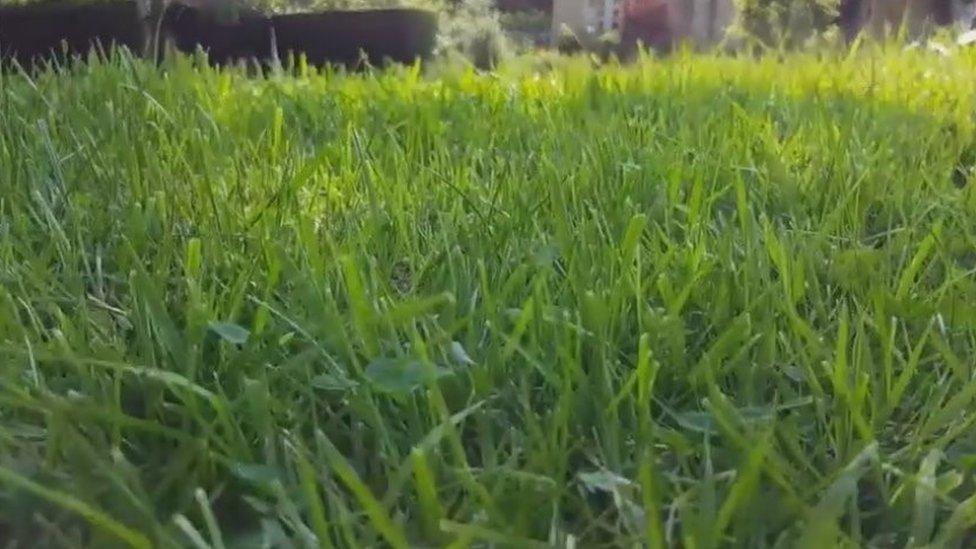Transport NI reduces grass cutting services for councils
- Published

The grass cutting shortfall will have to be met by local councils
Transport NI has been accused of 'not cutting it' over plans to reduce its grass trimming service.
Across Northern Ireland, cutting usually takes place twice annually and up to five times in urban areas.
Due to a funding shortfall, Derry City and Strabane District Council will now see its service diminished from three cuts a year, down to just one.
SDLP councillor Brian Tierney said he was concerned at what it could mean for road maintenance.
"I'm disappointed and concerned that the levels of grass cutting within this council district have again been cut. They have now reduced that to one cut per year," Mr Tierney told BBC Radio Foyle.
"Council have been stepping in to pick up the slack in that and I've asked the road service what exactly it is that they're doing to address this funding deficit."
The issue was raised at a council meeting on Tuesday.
'Department cannot fund councils'
Until recently, district councils could cut grass for aesthetic and amenity reasons, and then be reimbursed for the work by the Department for Infrastructure.
In a statement to the BBC, the Department for Infrastructure confirmed they would have to reduce their routine maintenance service due to the current budget.
"The department is aiming to cut all roadside verges and sightline grassed areas at least once in the period April-October," a spokesperson said.
"With sightlines at bends and junctions being cut more frequently within available resources to ensure public safety is not compromised, regrettably, the department will not be able to fund councils to cut grass this year.
"Given the indicative budget settlement outlined by the secretary of state in April, it is likely there will be knock on impacts for services including routine maintenance of the road network including grass cutting. In this area, the department is likely to be reliant on additional resources becoming available.
"Many councils cut urban grass areas last year for the benefit of their residents and the department is hopeful that this practice will continue."